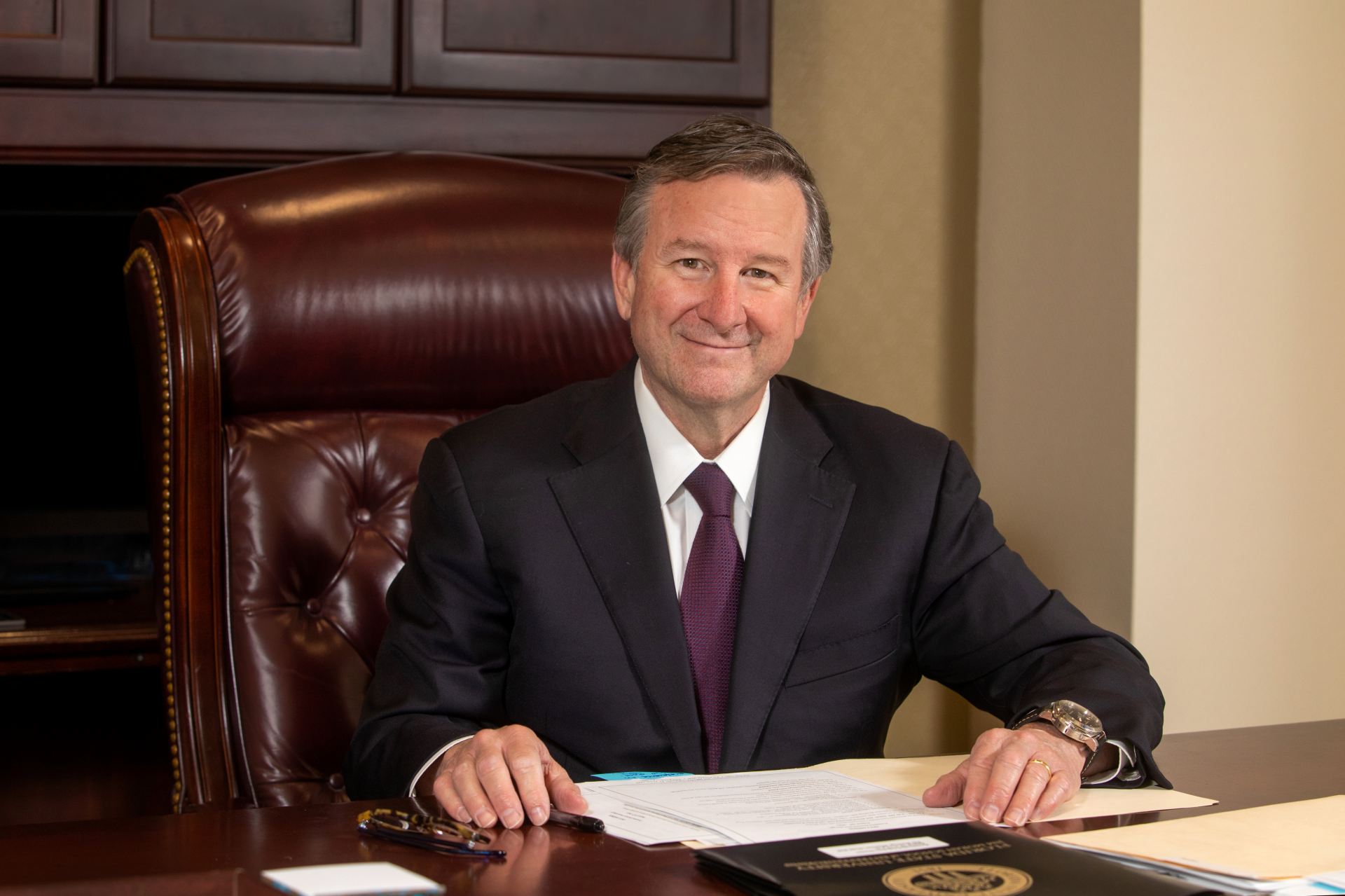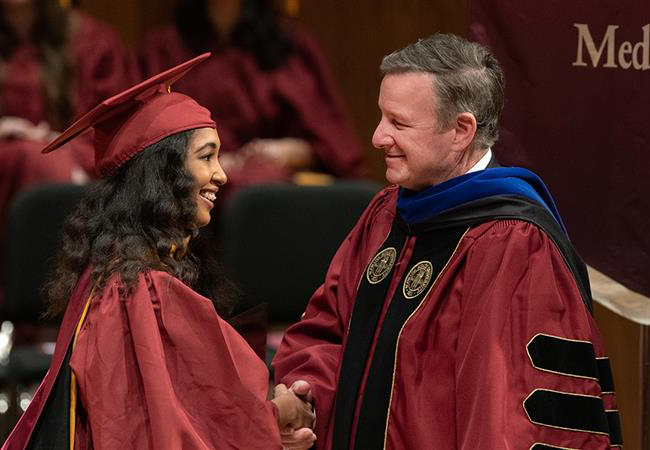
by Haywood McNeill
The year 2021 was good for University of Texas at Dallas alumnus Dr. Richard McCullough BS’82.
He became the 16th president of Florida State University (FSU) on August 16, 2021, bringing more than 30 years of academic research and leadership experience to the role as well as a commitment to innovation, entrepreneurship, diversity, equity, and inclusion.
“When the opportunity came before me, Florida State University was on a huge meteoric rise, going from No. 43 to No. 19 in U.S. News & World Report’s ranking of the nation’s public universities,” he said. “Florida State University is a powerhouse research and educational institution. FSU also has a true storied tradition in athletics. I’m a loyal sports fan.”
As president, McCullough’s major goals include expanding FSU’s faculty and its research portfolio, as well as building new strategic initiatives to continue the university’s incredible success with first-generation students.
FSU’s success among first-generation students is something that resonated with McCullough, who grew up in Mesquite, Texas, and came from a family of what he described as having limited means. The first in his family to go to college, McCullough attended Eastfield Community College before earning a bachelor’s degree in chemistry from UT Dallas in 1982.
“My goals were to remain focused, excel in school, and land a suitable job after graduating,” McCullough said. “I knew that education was the key to success.”
While McCullough found he had a knack for chemistry, he admitted it wasn’t effortless.
“During my time as a student at UT Dallas, the institution carried, as it still does, the reputation of being arduous, and everyone in the chemistry program worked very hard.”
From UT Dallas, he pursued a doctoral degree in organic chemistry from Johns Hopkins University in 1988. McCullough also spent two years as a postdoctoral fellow at Columbia University in New York.
“Initially I thought I would pursue a career in the chemistry industry but while I was at Johns Hopkins, I became interested in a career in academics. It was at Johns Hopkins where I met my wife, Dr. Jai Vartikar, who was also a graduate student there at the time. She was very supportive of me pursuing this different career path.”
McCullough began his professional academic career at Carnegie Mellon University in Pittsburgh, where he served as an assistant professor of chemistry in 1990 and became the Thomas Lord Professor of Chemistry in 2009. He was promoted to head of the chemistry department in 1998.
When the dean of the Mellon College of Science at Carnegie Mellon first asked him to serve as the department head, McCullough initially declined the offer but later accepted the challenge, a decision that would change the trajectory of his career.
“At the time, I didn’t think of myself as a university administrator. I was a professor and a researcher. However, through my work as department head, I discovered a passion for academic administration and for building departments,” he said.

During his 22 years at Carnegie Mellon, he developed a vibrant innovation ecosystem, including the Greenlighting Start-ups Initiative that exponentially increased the generation of university spin-out companies and corporate engagement.
McCullough rose through the ranks as dean of the Mellon College of Science from 2001 to 2007 before becoming the university’s vice president for research. It was at that time when he began to think he might want to be a provost or president someday.
In 2012, McCullough was recruited to Harvard to serve as vice provost for research and professor of materials science and engineering. In this role, he oversaw the development, review and implementation of strategies, planning and policies related to academic research and assisted in the establishment of more than 25 interdisciplinary institutes, centers and initiatives across the university.
A staunch champion of diversity, McCullough created a pipeline of Black/African American, Latinx and other underrepresented minority academics through the Future Faculty Workshop: Diverse Leaders of Tomorrow, an annual workshop that helps diverse postdoctoral fellows and students obtain academic jobs. Now in its 15th year, the workshop has facilitated placing more than 50 underrepresented minority professors in the United States.
Diversity, equity and inclusion remain as his top priorities at Florida State University.
“This is a critical issue for us, and we are committed to recruiting and hiring diverse leaders,” McCullough said. “We believe diversity is a pathway to excellence.”
McCullough, whom UT Dallas named a distinguished alumnus in 2005, said he’s a very proud to be an alumnus.
“The University of Texas at Dallas was a small, junior-senior commuter school when I was there. It has since grown into a large university with outstanding programs and excellent leadership. The University also experienced an incredible rise in rankings.”
McCullough remains in touch with several members of the UTD faculty — Dr. Anvar Zakhidov, Dr. John Ferraris, Dr. Ray Baughman and Dr. Bruce Novak. He has kept a close friendship with one of his former postdocs, Dr. Mihaela Stefan, who is now head of the School of Natural Sciences and Mathematics’ Department of Chemistry and Biochemistry.
His message to UT Dallas graduates is to test boundaries and outperform.
“Have patience and work hard at whatever you choose to do. People will then reward you – you should not expect to be rewarded just because you have potential,” he said.
Help us leave the planet a better place for future generations. Your support for the School of Natural Sciences and Mathematics funds scientific discoveries with real-world applications, student and faculty recruitment, and academic scholarships.